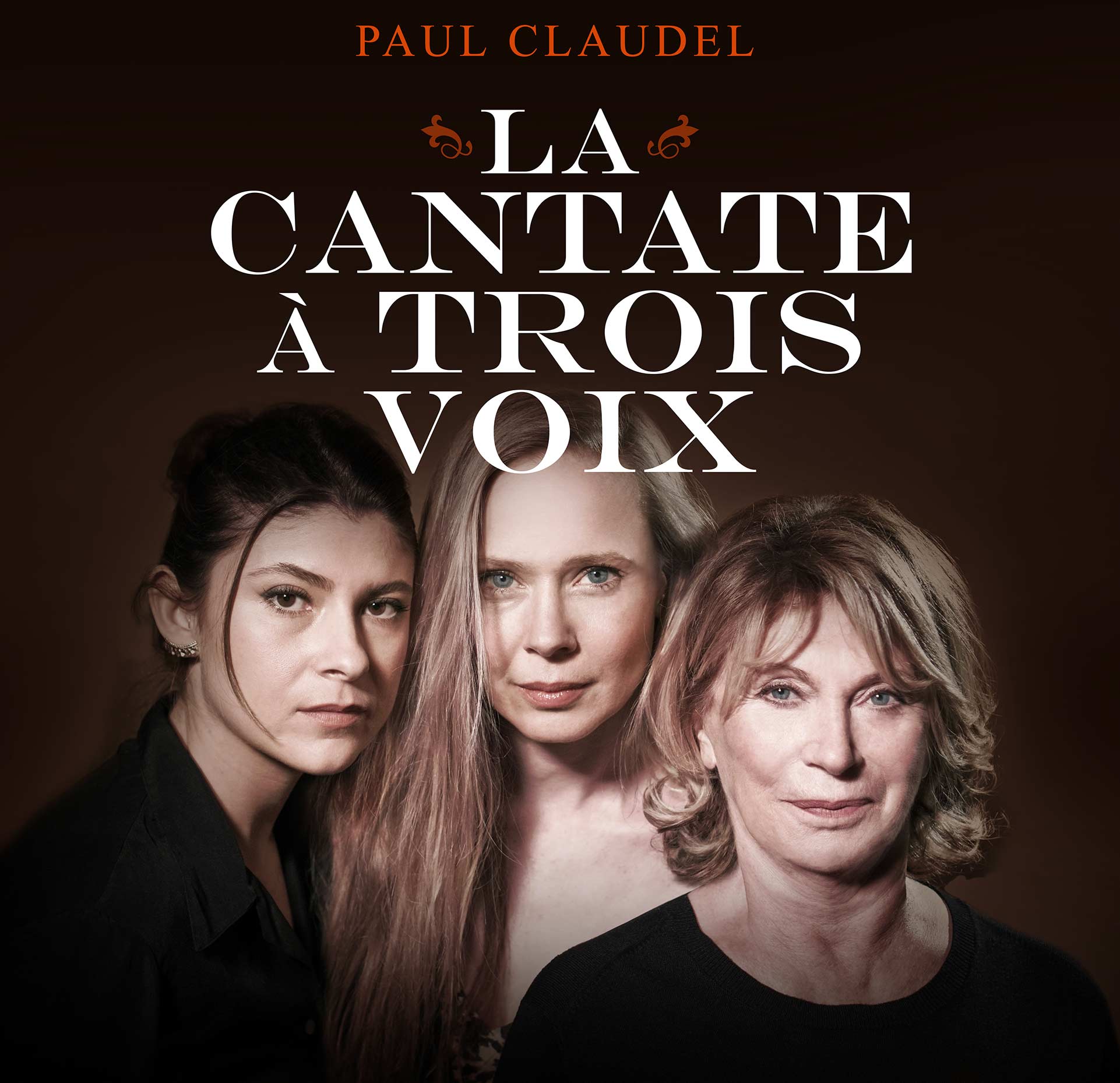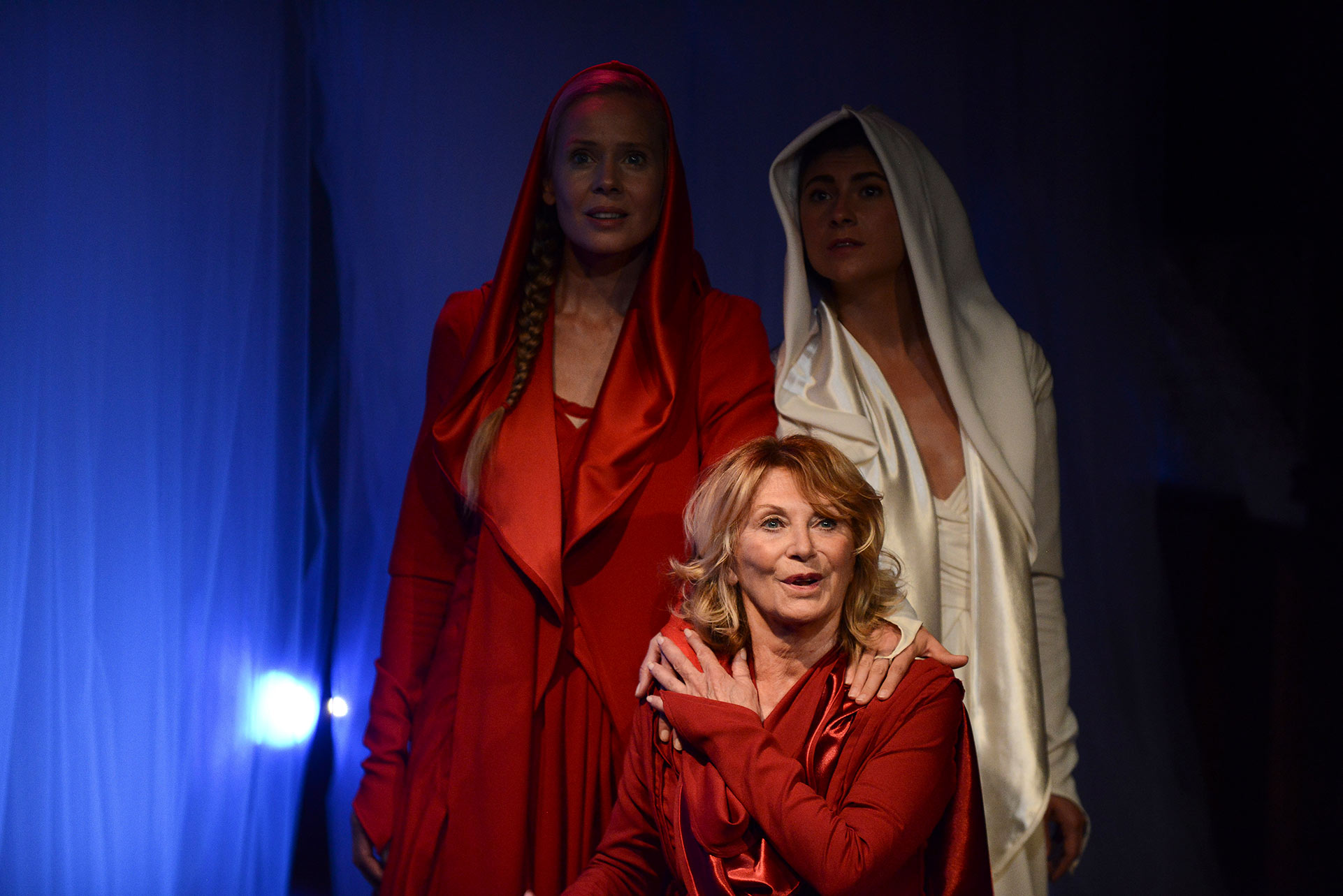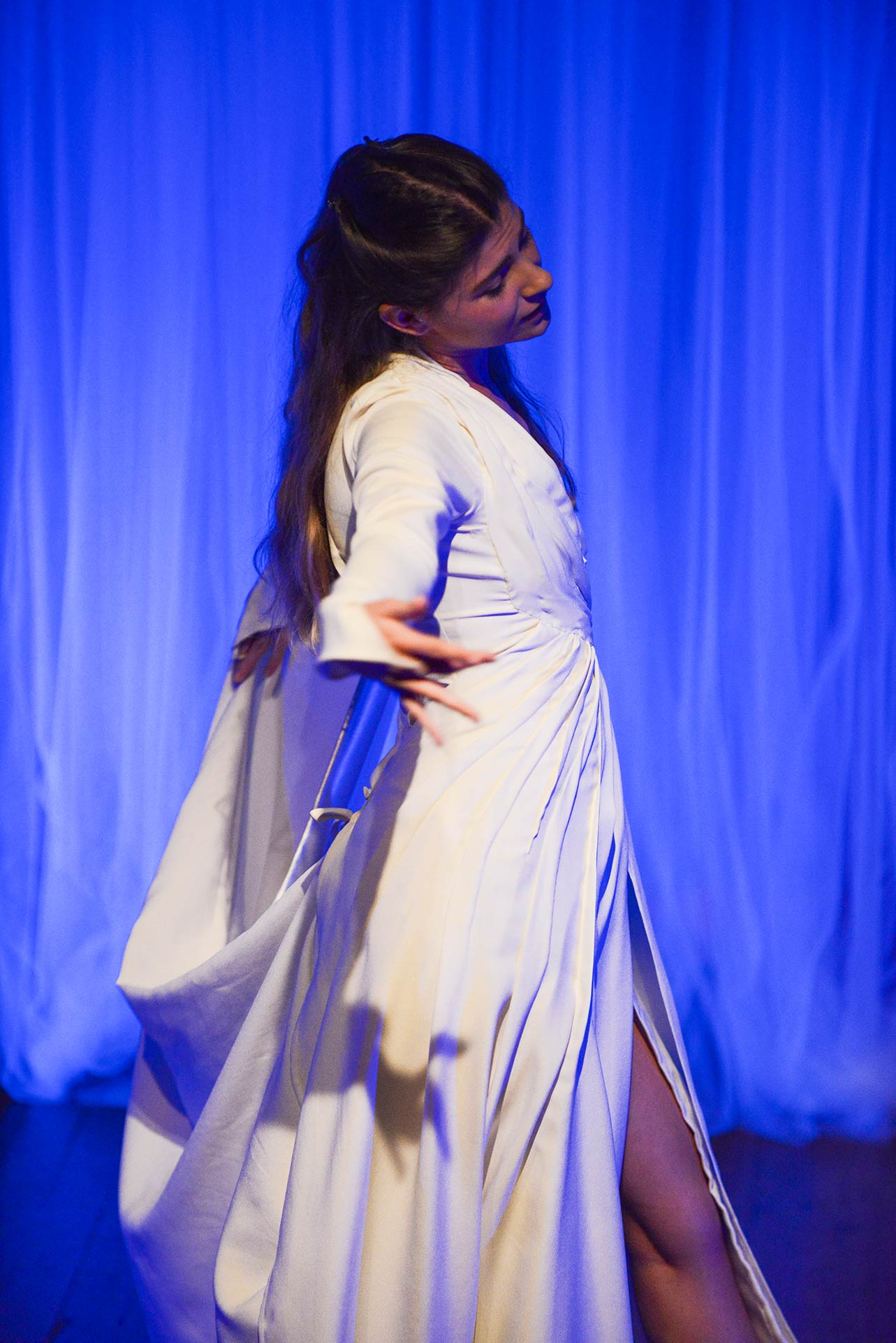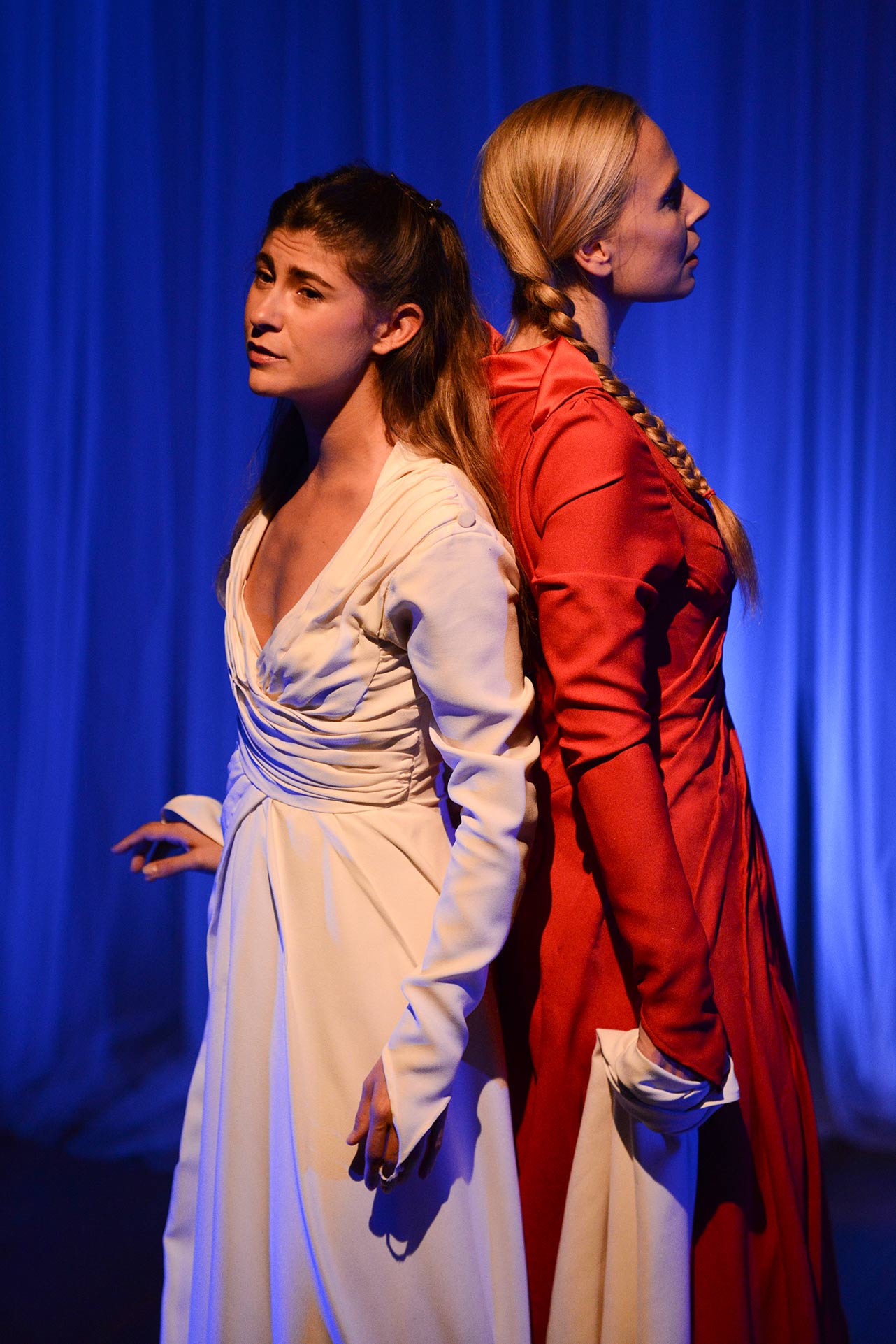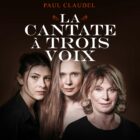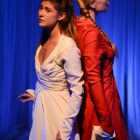Description
- Duration: 1 hour 15 minutes
- Author: Paul Claudel
- Composer: Tarik Benouarka
- Editions : Gallimard
- Production : 21-22
“Happiness is of this very hour when we miss the one our heart loves” Fausta in La Cantate à Trois Voix.
Out of time, projected towards a certain eternity, three women, in the three ages of life, three faces that complete each other as one, one night, meet… and each then let’s rise in her, the long singing of her expectations… as if all things were defined by their vacuity, the night becomes the setting of all thoughts.
They invoke, they summon, their absent one, their loved one. And each has her own story while little by little emerges the intimate drama that resembles the struggle of desire and the possible.
Laeta speaks first. She is celebrating the fiancé, the promised one. The one who is still only a dream and whom she does not know.In turn, comes Fausta… the exile… she’s talking… powerful… a warrior. She addresses the one who is so far from her and who was her companion. Finally, comes Beata. She whispers the mourning of the one who is no longer… her husband and love beyond life.
If the man does not appear, it is because he is more alive, even more present in the imagination of these three women.
It is about life as a trajectory, it is about exile and death, expectation, pain, hope, destiny, whose paths will not be fixed by circumstances… but through love.
The work is a hymn to Woman and Desire…
0-Overtures
1-First dialogue (D1: 4mn50)
2-Song of the Rose (C I: 4mn04)
3-Second dialogue (D2 : 1mn30)
4- Song of the Rhone (C II: 5mn17)
5-Third dialogue (D3: 2mn02)
6-Song of the Vine (C III: 4mn03)
7-Fourth dialogue (D4: 1mn)
8-Song of the Divided People (C IV: 5:30)
9-Fifth dialogue (D5: 1mn)
10-Song of the Inner Chamber (C V: 3mn40
11-Sixth Dialogue (D6: 2mn40)
12-Song of wandering tanks (C VI: 2mn57)
13-Seventh Dialogue (D7: 0mn7s)
14-Song of Gold (C VII: 3mn34)
15-Eighth Dialogue (D8: 1mn43)
16-Hard Heart Song (C VIII: 4mn12)
17-Ninth Dialogue (D9: 2mn04)
18-Perfume Song (C IX: 4mn46)
19-Tenth Dialogue (D10: 1mn 39)
20-Shadow Song (CX: 4mn 55)
21-Epilogue

